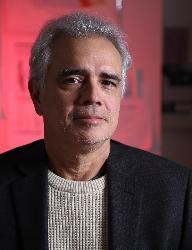IMS Affiliated Faculty

- Title
- Distinguished Professor
- Division Physical & Biological Sciences Division
- Department
- Earth & Planetary Sciences Department
- Institute of Marine Sciences
- Affiliations Crown College, Ocean Sciences Department
- Phone 831-459-4644
- Website
- Office Location
- Earth & Marine Sciences, Earth & Marine Sciences A260
- Earth & Marine Sciences D218
- Mail Stop Earth and Planetary Sciences
- Faculty Areas of Expertise Climate Change, Earth Sciences, Geochemistry
- Courses EART 110A - Evolution of Earth, EART 128 - Stable Isotopes: Theory and Applications, EART 258 - Deep Time Paleoclimates
Summary of Expertise
Paloeoceanography, Paleoclimatology, Stratigraphy, Stable Isotope Geochemistry
Research Interests
Jim Zachos's research interests encompass a wide variety of problems related to the biological, chemical, and climatic evolution of late Cretaceous and Cenozoic oceans. He measures the chemical composition of shells from marine sediments to reconstruct past changes in ocean temperature & circulation, continental ice-volume, productivity, and carbon cycling. His research is oriented toward identifying the mechanisms responsible for driving long and short-term changes in global climate.
Zachos, his students, and colleagues are currently participating in several projects oriented toward understanding the nature of rapid and extreme climate transitions in earth's past. These projects involve the application of stable isotope and trace metal ratios to reconstruct the ocean temperature and chemistry and hydroclimate for several episodes of extreme climates including the Paleocene-Eocene Thermal Maximum (~56 mya), the middle- and early Eocene Climatic Optimums, as well as subsequent long-term cooling trends. This also includes work to quantify rare episodes of ocean acidification (acid oceans) that accompanied several of the transient warmings. He is also involved in projects designed to establish the tiiming and scale of mid-Cenozoic glaciations on orbital time scales.
Biography, Education and Training
B.S., State University of New York, College at Oneonta
M.S., University of South Carolina
Ph.D., Graduate School of Oceanography, University of Rhode Island
Post Doctoral Fellow, University of Michigan
Honors, Awards and Grants
- National Young Investigator Award
- Visiting Fellow, University of Cambridge
- American Geophysical Union Emiliani Lecture
- Humboldt Research Award
- Fellow, Geologic Society of America
- Fellow, American Geophysical Union
- Fellow, American Academy of Arts and Sciences
- Fellow, California Academy of Sciences
- Distinguished Achievement Award, University of Rhode Island
- Milutin Milankovic Medal, European Geosciences Union
- Member, National Academy of Sciences
- Ida Benson-Lynn Endowed Chair of Ocean Health
- Member, Royal Netherlands Academy of Arts and Sciences
- Honorary Doctorate of Science, State University of New York
- Richard Foster Flint Lectureship, Yale University
- Fellow, American Association for the Advancement of Science
- BBVA Foundation Frontiers of Knowledge
Teaching Interests
Oceanography, Stable Isotope Geochemistry, Sedimentology/Stratigraphy, Oceans and Climate, Deep Time Paleoclimates, Paleoceanography
